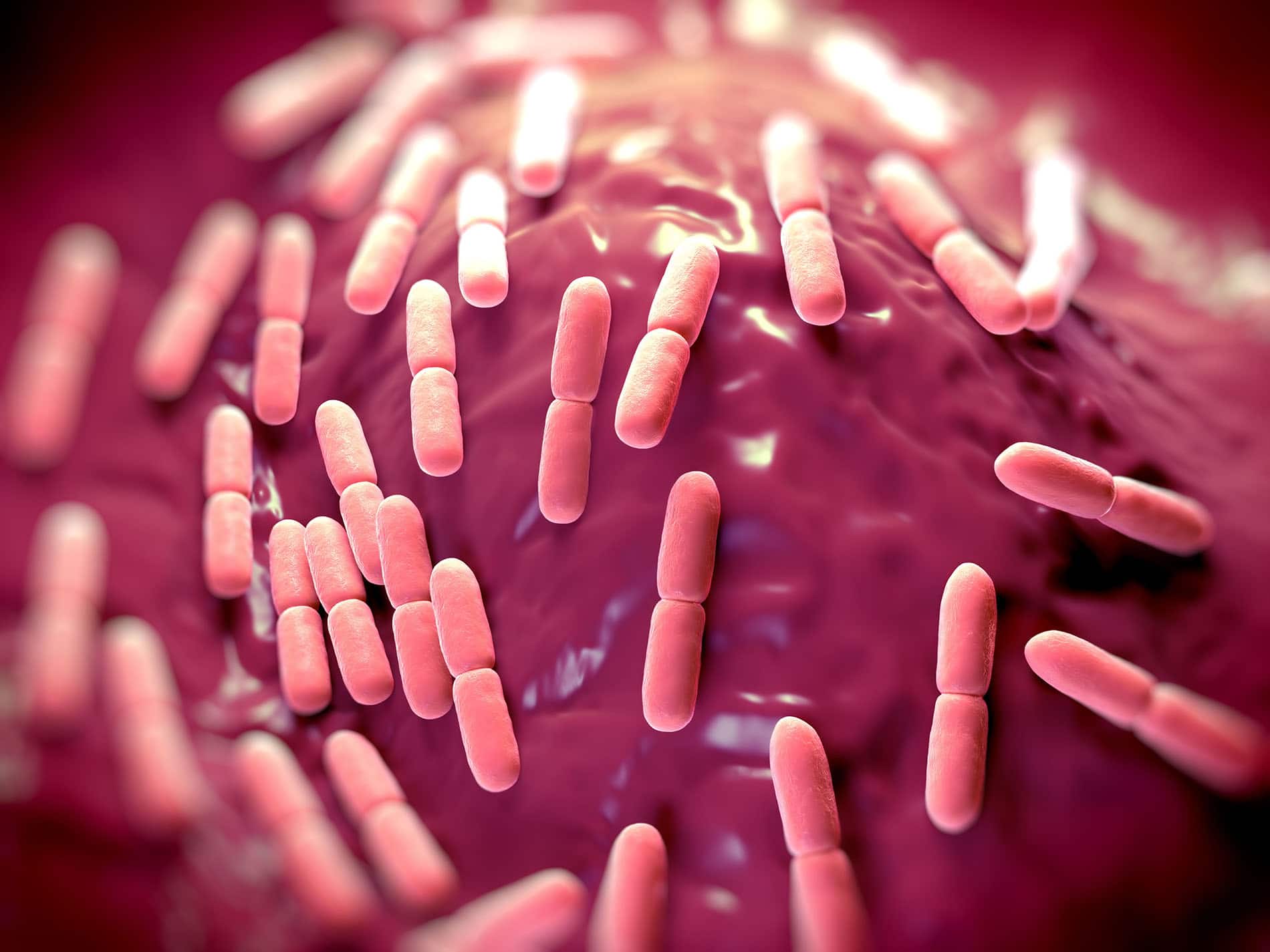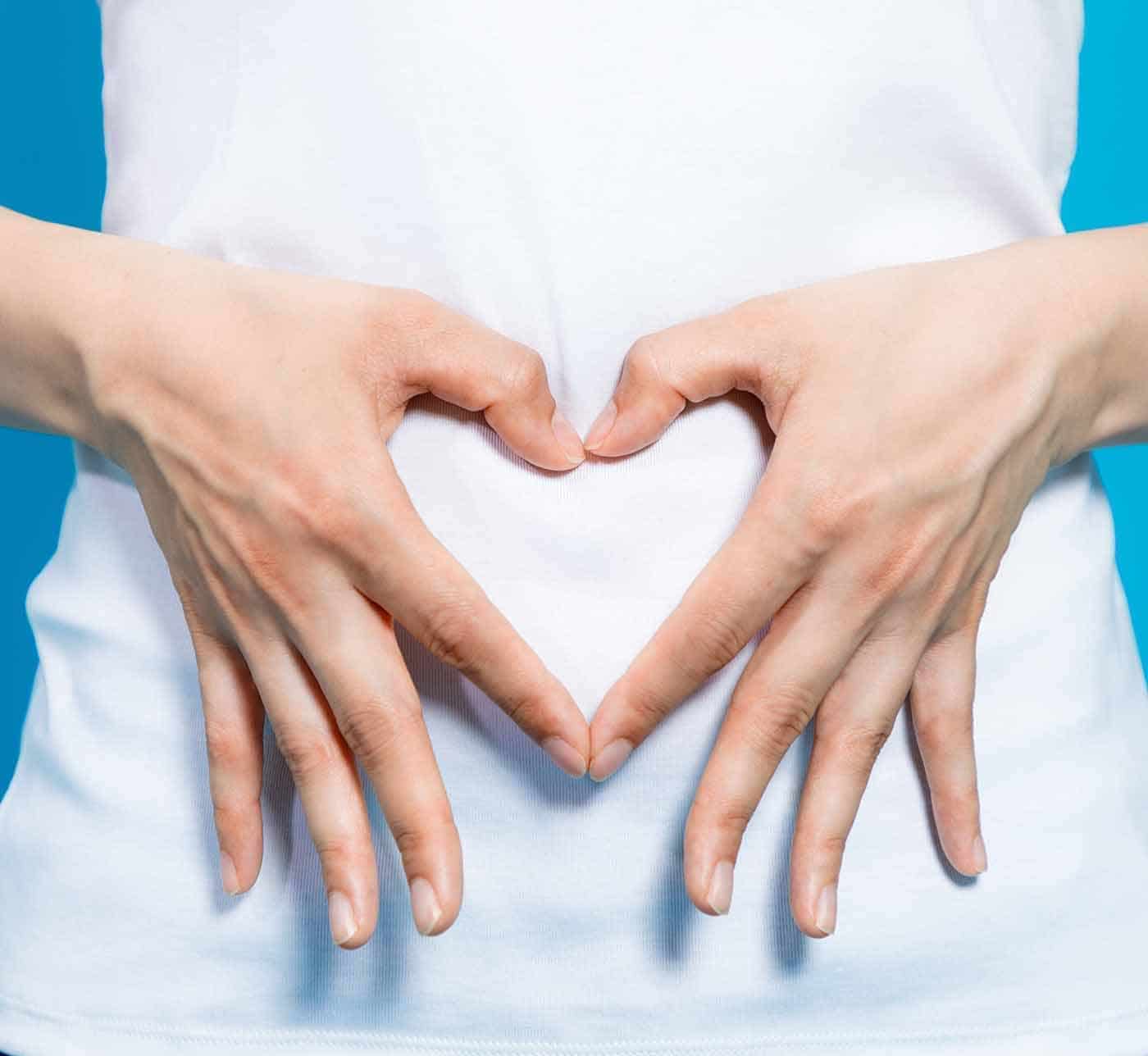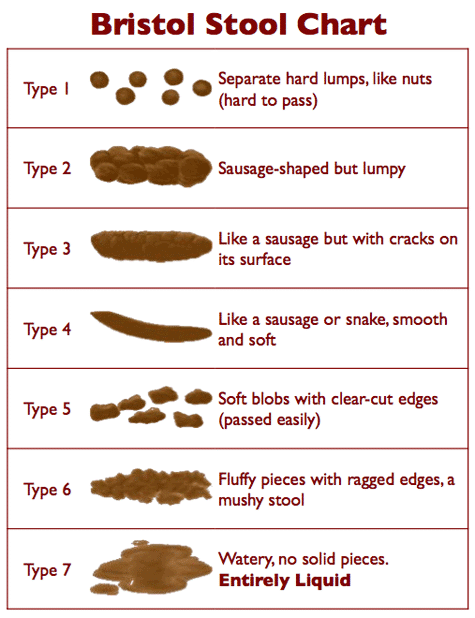Gut Health
The gut is the engine of our life. It not only provides fuel by digesting food, but also influences many other processes within the body. An imbalanced gut also has an influence on the entire body. Lifestyle plays a decisive role regarding the guts well-being. Our modern times that are characterised by an oversupply in industrially produced fool and by a multitude of harmful environmental impacts it is difficult to keep the bowl healthy. But there exist effective measures for intestinal health.
The bowel is the largest contact point to the outside world. Everything we eat or drink, whether healthy or possibly even toxic, eventually arrives at the bowel after travelling through mouth, oesophagus and stomach. During an entire lifetime the digestive system has to process around 40 tons of food and about 60.000 litres of fluid. Located mainly within the large intestine, many trillions of different microorganisms ensure that vital nutrients and substances reach their destination. Together these gut bacteria form the gut flora that is known in specialist jargon as intestinal microbiota. Most harmful and unusable substances are excreted through the anus as faeces. Remaining toxic substances are transported via the small intestine to the portal vein and the detoxification centre of body, the liver, where they are degraded. This is how the ideal digestive process would look like, but there are many different problems along the way that gut and liver may be faced with. Suboptimal nutritional habits (too much sugar and too much industrially processed food) and harmful environmental toxins and even some medicines (like antibiotics) can turn a purring gut motor into a stuttering scrap-box.

Jump-start digestion
Nowadays it is not possible to evade all environmental impacts like for instance noise or exhaust fumes. However, each individual can have a positive impact on the digestive system with the right lifestyle. A diverse, regional and seasonal dietary plan, avoidance of constant stress and regular resting phases as well as regular physical exercise and renouncing smoking and excessive drinking support our digestive system and the well-being of its microbial inhabitants. Annoying sufferings like constipation, diarrhoea, flatulence then almost have no chance. The only exception there is if aggressive pathogens have been allowed to become part of the game.
Why do we need a healthy gut flora?
- To protect the sensitive intestinal mucous membranes, which would otherwise become "holey". Then all harmful substances from the food could directly enter our body.
- To process our food quickly so that all nutrients can be filtered out of it and the harmful substances are immediately removed from the body.
- To improve the absorption of vitamins and minerals that keep us vital and active.
- For the production of various amino acids and essential fatty acids that we cannot absorb with food. We need these to protect every single cell in our body. For example, the short-chain fatty acids that are indispensable for the body are formed almost exclusively by fermentation processes of our intestinal bacteria.
- To cleanse the intestines. The best way to rid the intestinal villi of putrefying and fermenting residues is therefore to provide them with as many active intestinal bacteria as possible - lactobacilli, enterococci and bifidobacteria - on a daily basis.
"Optimal gut health - namely by colonising the gut with the "right" bacteria - forms an ideal basis for a vital life."
Mag. Anita Frauwallner
How to keep your gut healthy:
- Ensure you have regular bowel movements without laxatives
- Eat plenty of vegetables, rice and potatoes, and little sugar and fat
- Avoid preservatives in food
- Drink 2 litres of fresh water every day
- Do plenty of exercise in fresh air
- Learn how to compensate for stress and frenetic activity, whether it is at work and in your leisure time
- Consume active gut bacteria every day to compensate for the loss which occurs due to poor nutrition and stress
- Avoid taking medication unnecessarily

Pro bios means ‘for life’
As early as 100 years ago, the famous Russian doctor and Nobel prize winner Dr. Ilja Metchnikoff said: “Death lies in the bowels”. He had discovered that ethnic groups in the Caucasus who consumed products made with lactic acid fermentation (= probiotics) were healthy and resistant to illness, and lived to a great age.
Now we know why! The bowels contain the body’s best developed defence system. This is where the immune cells are formed which keep our organism free of toxins and foreign bacteria and viruses. In healthy bowels there are three times as many immune cells than in the spleen, bone marrow and the lymph nodes put together. All of them contribute to our defensive forces, but can only be produced in the bowels when sufficient healthy bacteria constantly process the chyme (partially-digested food) so that it does not start to ferment or rot. In a healthy person, many billions of intestinal bacteria work on a daily basis to ensure that our digestion works and that we feel really well.
Bowel movements: an indicator of intestinal health
Our lifestyle has a decisive influence on the intestinal flora - and so it is also evident on the toilet when stress, an unfavourable diet and medication influence the composition of the intestinal bacteria. Ideally, bowel movements follow a regular frequency, are well-formed (see illustration) and have an inconspicuous odour. Furthermore, the digestive remains should not leave any "traces" in the toilet bowl: This is because normal stool is excreted coated in mucus produced by the cells of the intestinal mucosa - and these in turn are supplied with energy by the intestinal bacteria. So if a sheet of toilet paper is sufficient for your cleansing, it means that your intestinal microcosm is functioning wonderfully.

The ideal stool
The Bristol-Stool-Chart
The Bristol-Stool-Chart provides an overview of the shape and texture of human stool to assess the duration of intestinal transit.
- Type 1: up to 100 hours, constipation;
- Type 7: about 10 hours, diarrhoea
- Type 3-4: ideal stool
Although the vast majority of the bacteria of the intestinal flora are located in the large intestine, the inhabitants of the small intestine play at least as important a role.
